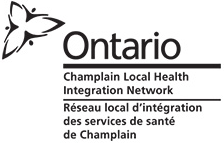
Sally's Story
"I was just going out for a walk..."
Sally is a 75-yo widow, active in her community, with an outgoing personality and a great sense of humor. She lives alone, but her daughter lives in town, and checks in on her occasionally. Over the last few months however, she has become noticeably more forgetful, to the where she has gone for walks while leaving the stove on. Last week, she went out for her usual morning walk, but got lost. Luckily, one of the neighbours that was driving by happened to recognize her, and brought her home.
Is this normal aging? Or is it something else?
What is Dementia?
Dementia refers to brain conditions causing loss of brain function which interferes with normal activities and relationships. Although it is common in the elderly, dementia is not a normal part of aging.
What are some common symptoms of dementia?
Family members often report the following changes in:
- Memory, e.g. "Used to have a good sense of direction, but nowadays gets lost, or loses his keys"
- Behaviour, e.g. "Used to be very social and enjoyed going out to see friends, but nowadays is withdrawn and doesn't like going out"
- Personality, e.g. "Used to be a great person to talk to, but nowadays gets into arguments all the time about things"
- Mood, e.g. "Used to be a happy person, but nowadays seems unhappy all the time"
What causes dementia?
Dementia is not any single disease or condition, but rather describes a set of symptoms that can be caused by a variety of conditions.
Common types and causes of dementia
Diseases that can cause dementia include:
- Alzheimer's Disease
- Vascular dementia
- Diffuse Lewy body dementia
- Pick's disease
- Normal pressure hydrocephalus
- Prion Disease (Creutzfeldt Jakob Disease)
Other conditions (many of which are reversible) that can mimic some of the symptoms of dementia include:
- Clinical depression
- Bad reactions to medications
- Metabolic and hormone problems
- Nutritional problems
- Infections
- Poisoning
- Brain tumors
- Lack of oxygen to the brain, as well as heart and lung problems.
How common is it?
Dementia becomes more and more common as we age.
- In those aged 65-74 year old, 1% have dementia.
- In those aged >75 year old, 10% have dementia.
- In those aged > 85 year old, 25% have dementia.
What to do about it
If you suspect that your loved one (or yourself) may have dementia, the first step is to see your physician.
Is there any treatment?
Treatment depends on the specific cause and situation.
In certain situations where the dementia symptoms are caused by a treatable condition (e.g. clinical depression, hormone problems), then successfully treating the condition may eliminate the symptoms.
a) Medications
There are also certain medication treatments, depending on the type of dementia. For example:
Alzheimer's disease: There are drugs (e.g. Donepezil aka. Aricept) for Alzheimer's which can improve symptoms and slow the worsening of the disease. Note however, that these drugs are not a cure, nor do they reverse the condition. But it can help improve the quality of life of the person with dementia, thus making things easier on caregivers, and delay the time before a nursing home is required.
Vascular dementia: Since vascular dementia is caused by problems with blood vessels, it is helpful to deal with high blood pressure, and other 'cardiac' risk factors.
b) Coping strategies
Many people with dementia, particularly those in the early stages, may benefit from learning cognitive strategies such as:
- ‘Brain exercises' to improve memory, thinking and other brain skills.
- Memory aids such as electronic devices to help remind about daily routines; posting visual agendas and schedules, notes and signs to provide visual cues about activities and routines
c) Physical exercise has been shown helpful. It has been shown that regular physical exercise, along with a healthy diet can reduce the risk of getting dementia. And even for those with dementia, physical exercise can still make a difference in slowing the progression of dementia, and it improves the quality of life.
My loved one has been diagnosed with dementia...
What can I expect?
Although treatments exist, and the conditions can be managed, dementia is generally irreversible.
Alzheimer's disease and Huntington's disease cannot be reversed; thus, the person with these conditions will gradually lose more and more mental functions.
Stages of Dementia
Professionals will often talk about dementia in stages, such as Early stage (mild); Middle stage (moderate), and Late stage (Severe, Advanced, End-Stage).
With severe dementia, people normally need round-the-clock care and supervision in order to keep them safe (i.e. from harming themselves or others). They also may need assistance with daily activities such as eating, bathing, and dressing.
You are not alone...
Dementia is a serious condition, and it is scary for patients and family members alike to receive the diagnosis.
Fortunately, you are not alone. There are a variety of community supports available to individuals and their caregivers. Speak with your physician to find out about what supports are available to you.
Key Resources
In Canada
Alzheimer Society of Canada, is a mutual aid group founded to help people affected by Alzheimer's disease and related dementias. No matter what form of dementia you (or your loved one) have, you can get information and support from the Alzheimer Society.
In Ontario
Whether you need help to stay at home, whether you need help finding care in your community, or if you are unable to stay at home, the Community Care Access Centres across Ontario exist to help connect individuals to resources.
In the USA
The Alzheimer's Association provides information, education and support for Americans, with local chapters throughout the United States.
Authors
This article is written by members of the eMentalHealth.ca Team and Editorial Board, which includes Dr. Tim Lau, Geriatric Psychiatrist, Royal Ottawa Mental Health Centre, and Assistant Professor, University of Ottawa.
Disclaimer
Information in this pamphlet is offered 'as is' and is meant only to provide general information that supplements, but does not replace the information from your health provider. Always contact a qualified health professional for further information in your specific situation or circumstance.
Creative Commons License
You are free to copy and distribute this material in its entirety as long as 1) this material is not used in any way that suggests we endorse you or your use of the material, 2) this material is not used for commercial purposes (non-commercial), 3) this material is not altered in any way (no derivative works). View full license at http://creativecommons.org/licenses/by-nc-nd/2.5/ca/











